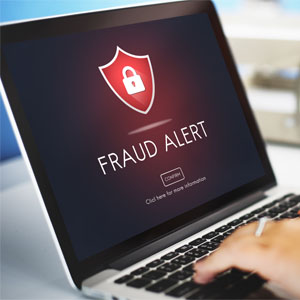|
 With news of the coronavirus (COVID-19), on the rise, so are phishing scams... CB&S Bank wants to ensure that our customers know what red flags to look for to protect them against these scams. With news of the coronavirus (COVID-19), on the rise, so are phishing scams... CB&S Bank wants to ensure that our customers know what red flags to look for to protect them against these scams.
- Don't Respond to Texts or Emails—Scammers are known to take advantage of people by sending texts or emails that will either ask for personal information (account numbers, Social Security numbers, etc.) or ask the user to click a link that can then install malware on your computer or device. Be sure not to respond to texts or emails or to click on links. You can even take extra precaution by ensuring that your security software is up-to-date and that your software on your mobile device is up-to-date, as well.
- Be Aware of Robocalls—Scammers are beginning to use robocalls to scam consumers. If you answer a robocall, do not press any numbers. The best thing to do is simply hang up.
- Be Sure to Check Your Facts—A lot of times, scammers and even well-intentioned individuals, may share false information. It is imperative to check your facts, especially in times of uncertainty. Be sure that the information checks out before passing it along and definitely before sharing any personal information or payments.
- Disregard Online Offers for Vaccinations/Cures—Scammers may send online offers for vaccinations/cures during this time in which the individual would click a link. Please remember that, at this time, there are no vaccines or cures for the novel coronavirus. Do not click links if you receive an email directing you to a vaccine or cure for the virus.
- Ensure that You are Donating to Legitimate Charities/Crowdfunding Sites—During this trying time, you may notice your community coming together in a way it never has before... Families may be eating more take-out to help support local restaurant owners, stores may be offering to bring your purchases out curbside, and crowdfunding sites may be set up in order to collect money to pay restaurant-workers who generally work for tips. While donating to charities and crowdfunding sites is a great thing to do, if you feel so inclined, be sure that what you are donating to is a legitimate cause.
- Know the Generic Warning Signs for Email Scams—It is also a good idea to know the generic warning signs for email phishing scams: Look for spelling or grammatical errors, watch for generic or non-personalized greetings and be wary of emails asking you to "act now"
|